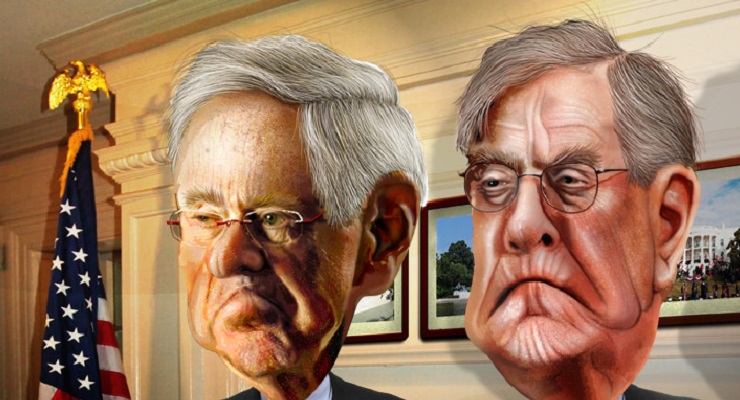
There is concern that the judge backed by the ads may have to recuse himself in future cases thanks to the public support. The Brennan Center’s Fair Courts E-lert, this month titled, “Federal Judicial Selection, State Court Diversity, and Costly Campaigns” had an interesting piece in its Federal Judicial Selection section titled, “Interest Group Runs Ad Supporting Trump Nominee to Third Circuit” about spending by the Concerned Veterans for America lobby. Take a look:
Concerned Veterans for America (CVA), a 501(c)(4) group that receives funding from the Koch brothers, began placing advertisements supporting the nomination of Stephanos Bibas to the Third Circuit, writes Stephanie Francis Ward for The ABA Journal. According to Ward, the advertisement made “some wonder whether it might lead to him recusing himself from certain cases, if he is confirmed.”
Citing Caperton v. Massey, where the U.S. Supreme Court ruled that a West Virginia Supreme Court justice should have recused himself after a litigant with a pending case spent substantial sums in support of his election, Charles Gardner Geyh, a professor at Indiana University’s Maurer School of Law, said CVA’s spending “gives rise to the question of whether a federal judge or justice must disqualify himself from cases in which PAC support for (or opposition to) a nominee creates a similar probability of bias when a party closely associated with the PAC has a case before that judge.”
Arthur Hellman, a law professor at the University of Pittsburgh School of Law, said “I think many judges are troubled by the increasing politicization of both the confirmation process and the perception of judges.” Interest groups also spent to support the confirmation of Justice Neil Gorsuch to the U.S. Supreme Court, which Hellman says “shows how things that start at the Supreme Court level are now trickling down and being replicated for lower-court nominations.”
About Stephanos Bibas from his page at the University of Pennsylvania Law School where his is Professor of Law and Criminology and Director of the Supreme Court Clinic:
Stephanos Bibas studies the powers and incentives that shape how prosecutors, defense counsel, defendants, and judges behave in the real world of guilty pleas. His 2004 paper, “Plea Bargaining Outside the Shadow of Trial” (Harvard Law Review), explored the agency costs, structural forces, and psychological biases that cause plea bargaining to deviate from expected trial outcomes. He also studies the divorce between criminal procedure’s focus on efficiency and criminal law’s interest in healing victims, defendants, and communities. His new book (The Machinery of Criminal Justice, Oxford 2012) explains how criminal justice should do more to encourage acceptance of responsibility, remorse, apology, and forgiveness.
As director of Penn’s Supreme Court Clinic, Bibas litigates a wide range of Supreme Court cases. He and his co-counsel won a landmark victory in Padilla v. Kentucky in 2010, persuading the Court to recognize the right of noncitizen defendants to accurate information about deportation before they plead guilty. His academic work played a central role in the Supreme Court’s landmark case of Blakely v. Washington.
An unrelated video by Concerned Veterans for America on court reform that shows what the group is seeking from spending:
https://www.youtube.com/watch?v=SLbHCW3QO48
Leave a Reply